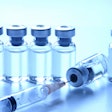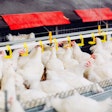
Laboratory grown animal fat! Can you imagine the smell in the lab if the temperature goes too high? It could be wonderful - but it could be pretty foul too.
Laboratory grown fat is what’s on the menu at U.K. startup Hoxton Farms and, like it or loathe it, the company has recently secured funding to grow its business and to provide what it classes as the missing ingredient in meat alternatives.
The GBP2.7 million (US$3.8 million) investment from a number of venture capital funds will be used to develop proof of concept of its production platform and build customer partnerships.
The market for plant-based meat has grown significantly, yet it still has a long way to go because, the company’s founders believe, it is missing out on real cell-based animal fat.
According to co-founder Dr. Max Jamilly, Hoxton wants to “bring back fat” as, he says, it is the single most important ingredient in the meat that we eat.
Meat alternatives, he continues, currently contain plant oils as a substitute for animal fat, but these oils have an enormous environmental impact and make plant-based meat greasy and unpalatable. Hoxton, however, will solve this problem by cultivating fat that is ethical and sustainable, without compromising taste or performance.
Calculating growth
Starting with a tiny sample of animal cells, Hoxton Farms grows purified animal fat in cultivars, much like fermenters used for brewing beer. This process, however, is expensive and difficult to scale and the company is addressing this by using proprietary computation models to reduce costs.
Co-founder Ed Steel explains that a mathematical approach is behind everything that the company does. The entire process is simulated computationally – from biopsy to bacon, or whichever fat you may want. The digital twin allows Hoxton to optimize ever raw material input in parallel, greatly improving the cost-efficiency and performance of the cultivated fat.
Work is expected to start at the company’s R&D laboratory in the coming months and should result in fats that are tailored to the precise sensory and functional properties that a customer may want.
As chance would have it, I live quite close to Hoxton Farms. You don’t see that many farms in the center of London and, given that the company will not have any animals on site, I don’t suppose that it will be that easy to spot them from the street. If, however, there is an overpowering smell of chicken, or beef, or pork wafting up my road this summer, then I suppose that Hoxton will have scaled up!


















